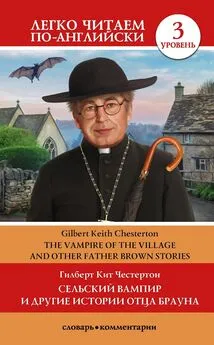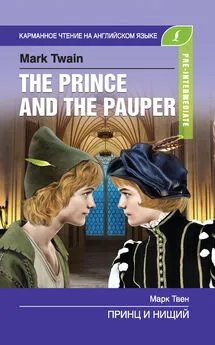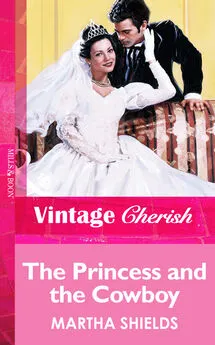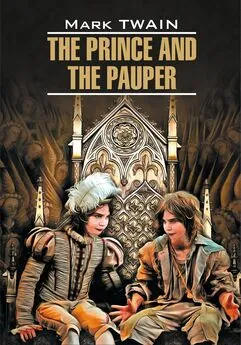Oscar Wilde - The Happy Prince and Ohter Tales
- Название:The Happy Prince and Ohter Tales
- Автор:
- Жанр:
- Издательство:неизвестно
- Год:неизвестен
- ISBN:нет данных
- Рейтинг:
- Избранное:Добавить в избранное
-
Отзывы:
-
Ваша оценка:
Oscar Wilde - The Happy Prince and Ohter Tales краткое содержание
The Happy Prince and Ohter Tales - читать онлайн бесплатно полную версию (весь текст целиком)
Интервал:
Закладка:
precious ['pre∫əs ] pomegranate['pOmigrænit ] weigh [wei]
“Here indeed is the true lover,” said the Nightingale. “What I sing of, he suffers—what is joy to me, to him is pain. Surely Love is a wonderful thing. It is more precious than emeralds, and dearer than fine opals. Pearls and pomegranates cannot buy it, nor is it set forth in the marketplace. It may not be purchased of the merchants, nor can it be weighed out in the balance for gold.”
“The musicians will sit in their gallery (музыканты будут сидеть на /своих/ хóрах; gallery — галерея; хóры) ,” said the young Student (сказал юный Студент) , “and play upon their stringed instruments (и играть на /своих/ струнных инструментах; string — веревка, бечева, муз. струна, to string — снабжать струной, тетивой, натягивать струну) , and my love will dance (и моя возлюбленная будет танцевать) to the sound of the harp and the violin (под звуки арфы и скрипки) . She will dance so lightly (она будет танцевать так легко; lightly — слегка, едва; проворно, легко) that her feet will not touch the floor (что ее ножки не будут касаться пола; foot (мн. feet) — нога, ступня) , and the courtiers in their gay dresses (и придворные в своих нарядных платьях/одеждах; gay — веселый, радостный; нарядный) will throng round her (будут толпиться вокруг нее; to throng — скапливаться, собираться; толпиться) . But with me she will not dance (но со мной она танцевать не будет) , for I have no red rose to give her (так как у меня нет красной розы, чтобы подарить /ее/ ей; to give — давать; дарить) ”; and he flung himself down on the grass (и он бросился на траву; to fling (flung) — метать, бросать; броситься) , and buried his face in his hands (и закрыл /свое/ лицо руками; to bury — хоронить, погребать; погружать, прятать) , and wept (и заплакал; to weep (wept)) .
musician [mju:'zi∫(ə)n ] harp [hα:p ] violin["vaiə'lin ] courtier ['kO:tiə ]
“The musicians will sit in their gallery,” said the young Student, “and play upon their stringed instruments, and my love will dance to the sound of the harp and the violin. She will dance so lightly that her feet will not touch the floor, and the courtiers in their gay dresses will throng round her. But with me she will not dance, for I have no red rose to give her”; and he flung himself down on the grass, and buried his face in his hands, and wept.
“Why is he weeping (почему он плачет) ?” asked a little Green Lizard (спросила маленькая Зеленая Ящерица; lizard — ящерица, сущ. в англ. языке имеет мужской род, заменяется местоимением he) , as he ran past him (в то время как она: «он» пробегала мимо него; to run (ran, run) ) with his tail in the air (помахивая хвостиком: «со своим хвостом в воздухе») .
“Why, indeed (почему, на самом деле) ?” said a Butterfly (спросила: «сказала» Бабочка) , who was fluttering about after a sunbeam (порхавшая /в округе/ за солнечным лучом; to flutter — трепетать, дрожать; бить, взмахивать крыльями; beam — луч) .
“Why, indeed?” whispered a Daisy to his neighbour (прошептала Маргаритка своей: «его» соседке) , in a soft, low voice (нежным/мягким, тихим голосом; low — низкий, невысокий; тихий) .
“He is weeping for a red rose (он плачет о красной розе) ,” said the Nightingale (ответил: «сказал» Соловей) .
“For a red rose (о красной розе) ?” they cried (воскликнули они) ; “how very ridiculous (как /очень/ смешно; ridiculous — смехотворный, смешной, нелепый) !” and the little Lizard (а маленькая Ящерица) , who was something of a cynic (которая была немного = в некотором роде циником) , laughed outright (открыто рассмеялась; outright — прямо, открыто) .
But the Nightingale understood the secret of the Student’s sorrow (но Соловей понимал секрет печали Студента; to understand (understood) ), and she sat silent in the oak-tree (и он сидел молчаливо на дубе: «дереве дуба»; to sit (sat) ), and thought about the mystery of Love (и думал о тайне Любви; to think (thought) ).
whisper ['wispə ] neighbour ['neibə ] ridiculous [ri'dikjυləs ]mystery ['mist(ə)ri ]
“Why is he weeping?” asked a little Green Lizard, as he ran past him with his tail in the air.
“Why, indeed?” said a Butterfly, who was fluttering about after a sunbeam.
“Why, indeed?” whispered a Daisy to his neighbour, in a soft, low voice.
“He is weeping for a red rose,” said the Nightingale.
“For a red rose?” they cried; “how very ridiculous!” and the little Lizard, who was something of a cynic, laughed outright.
But the Nightingale understood the secret of the Student’s sorrow, and she sat silent in the oak-tree, and thought about the mystery of Love.
Suddenly she spread her brown wings for flight (внезапно он расправил свои темные крылья для полета; to spread (spread) — распространять, раскладывать; развертывать; brown — коричневый, бурый) , and soared into the air (и взлетел в воздух; to soar — парить, высоко летать; взлетать) . She passed through the grove like a shadow (он пронесся по роще подобно тени; to pass — идти, проходить мимо; проходить через что-либо, пересекать) , and like a shadow she sailed across the garden (и, как тень, он проплыл по саду = пролетел над садом: «через сад»; to sail — плавать, плыть под парусом; зд. авиа. парить, планировать) .
In the centre of the grass-plot (в центре лужайки; grass — трава; plot — участок земли) was standing a beautiful Rose-tree (стоял прекрасный Розовый Куст; tree — дерево, rose-tree — штамбовая роза) , and when she saw it (и когда он увидел его; to see (saw, seen) ) she flew over to it (он подлетел к нему; to fly (flew, flown) ), and lit upon a spray (и опустился на /одну из/ веточек; to light (lighted, lit) on, upon — неожиданно, случайно натолкнуться; опускаться, садиться) .
“Give me a red rose (дай мне красную розу) ,” she cried (воскликнул он) , “and I will sing you my sweetest song (и я спою тебе свою самую мелодичную = лучшую песню; sweet — сладкий, свежий; мелодичный, благозвучный) .”
But the Tree shook its head (но /Розовый/ Куст покачал головой; to shake (shook, shaken) — трясти, дрожать; качать) .
“My roses are white (мои розы белые) ,” it answered (ответил он) ; “as white as the foam of the sea (/такие же/ белые, как морская пена) , and whiter than the snow upon the mountain (и белее, чем снег в горах: «на горах») . But go to my brother (/но/ отправляйся: «пойди» к моему брату) who grows round the old sun-dial (который растет возле: «вокруг» старых солнечных часов; dial — циферблат, круговая шкала) , and perhaps he will give you what you want (и, возможно, он даст тебе то, что ты хочешь) .”
through [θru: ] mountain ['maυntin] sundial ['sλndaiəl ]
Suddenly she spread her brown wings for flight, and soared into the air. She passed through the grove like a shadow, and like a shadow she sailed across the garden.
In the centre of the grass-plot was standing a beautiful Rose-tree, and when she saw it she flew over to it, and lit upon a spray.
“Give me a red rose,” she cried, “and I will sing you my sweetest song.”
But the Tree shook its head.
“My roses are white,” it answered; “as white as the foam of the sea, and whiter than the snow upon the mountain. But go to my brother who grows round the old sun-dial, and perhaps he will give you what you want.”
So the Nightingale flew over to the Rose-tree (итак, Соловей полетел к тому Розовому Кусту; to fly (flew, flown)) that was growing round the old sun-dial (который рос возле старых солнечных часов) .
“Give me a red rose (дай мне красную розу) ,” she cried (воскликнул он) , “and I will sing you my sweetest song (и я спою тебе свою самую лучшую песню) .”
Читать дальшеИнтервал:
Закладка:
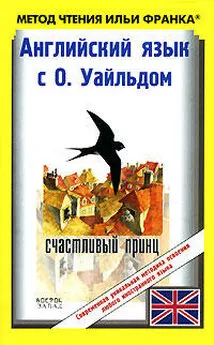
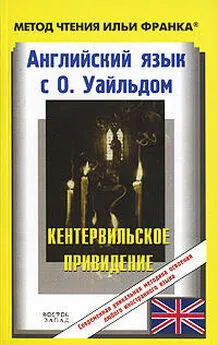
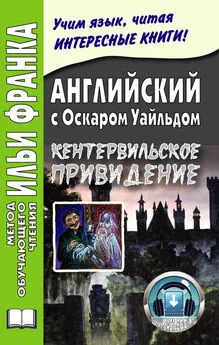
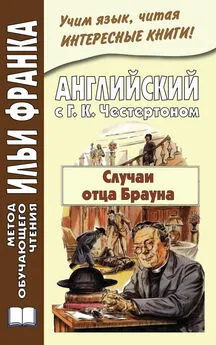
![О Генри - Принцесса и пума [The Princess and the Puma]](/books/1076182/o-genri-princessa-i-puma-the-princess-and-the-pum.webp)
